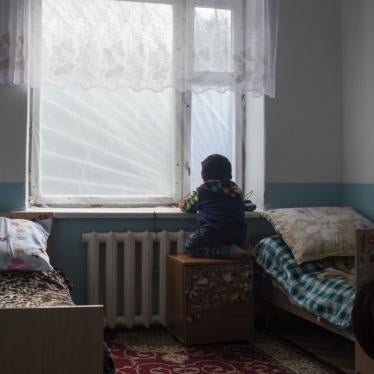To: Members of the Parliamentary Assembly of the Council of Europe
21 June 2013
RE: Request to open a monitoring procedure in respect of Hungary
Dear Assembly Member,
Ahead of next week’s Assembly debate on the request to open a monitoring procedure in respect of Hungary, Amnesty International and Human Rights Watch urge you to support the Monitoring Committee’s recommendation to place Hungary under the Assembly’s monitoring procedure.
The Monitoring Committee’s assessment is well-grounded and authoritative. It is consistent with our own findings (see Human Rights Watch’s May 2013 report, “Wrong Direction on Rights” and Amnesty International’s March 2013 briefing, “Amnesty International’s Concerns about the Fourth Amendment to Hungary’s Fundamental Law”). It is also consistent with numerous other expert bodies and observers who have repeatedly raised the alarm about developments in Hungary and urged the Hungarian authorities to remedy concerns identified. These include, but are not limited to, the Venice Commission, the UN High Commissioner for Human Rights, the UN Special Rapporteurs on the Right to Adequate Housing and Poverty and Human Rights, the OSCE Representative on Freedom of the Media, and the European Parliament’s Civil Liberties Committee (LIBE).
Regrettably, the Hungarian government’s response has been to steadfastly reject legitimate concerns as unfounded, based on a misunderstanding, or motivated by political bias. What is more, instead of seeking to address concerns identified, the government proceeded to impose further constitutional changes in March 2013. These changes effectively reversed binding rulings by Hungary’s Constitutional Court that upheld fundamental rights, by introducing into the constitution itself problematic laws the court had previously struck down, and ending the court’s power to review the substance of constitutional amendments. As the Monitoring Committee’s report notes, “[t]he fact that this fourth amendment knowingly contains a number of provisions that had previously been declared unconstitutional by the Constitutional Court of Hungary and/or flagged as being at variance with European principles and norms by the Venice Commission, is unacceptable and raises questions about the willingness of the current authorities to abide by European standards and norms.”
Hungary’s constitution now permits local authorities to criminalise homeless people, curbs religious freedom, and limits the rights of vulnerable groups, by restricting voting rights for persons with disabilities, and excluding unmarried and same-sex couples from the notion of “family”. Other problematic areas include undue political influence over key public institutions such as the Media Council and the National Judicial Office, a new body responsible for administering the courts and appointing judges.
The legal changes introduced by the Hungarian government are extremely worrying. They undermine the respect for rule of law and protection of human rights in Hungary and violate its commitments and obligations as a member of the Council of Europe. The Venice Commission describes the measures in terms of “a threat for constitutional justice,” seriously undermin[ing] the possibilities of constitutional review in Hungary and endanger[ing] the constitutional system of checks and balances.” It further highlights “a risk that [the limitation on the role of the constitutional court] may negatively affect all three pillars of the Council of Europe: the separation of powers as an essential tenet of democracy, the protection of human rights and the rule of law.”
But perhaps most disturbing has been the Hungarian authorities’ persistent disregard of concerns and recommendations by key institutions and actors whose sole objective is to assist states in upholding their international human rights obligations.
Hungary’s downward slide on protecting the rule of law and human rights must be stopped, and a strong message sent that deflecting legitimate concerns as factually wrong or politically motivated will not be tolerated. The Assembly has a crucial role to play in this regard, by adding its voice to those speaking out in defence of rule of law and human rights in Hungary and by using the tools available to help ensure the Hungarian government takes the steps needed to bring its laws into line with Council of Europe standards.
Backing the Monitoring Committee’s recommendation to place Hungary under its monitoring procedure is an essential part of these efforts.
We hope we can count on your principled leadership and support on this important matter.
Sincerely,
Dr Nicolas J Beger Hugh Williamson
Director European Institutions Office Director Europe and Central Asia Division
Amnesty International Human Rights Watch







